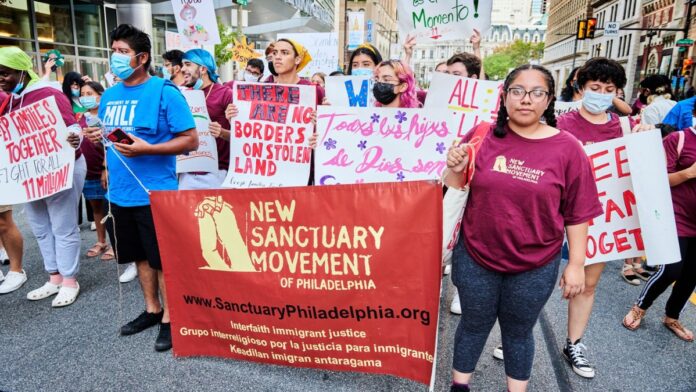Philadelphia, home to roughly 50,000 undocumented immigrants, is a sanctuary city.
This status, while significant, does not fully protect residents from federal deportation actions.
Sanctuary cities like Philadelphia implement policies to limit cooperation with federal immigration enforcement, and that creates challenges for agencies like the U.S. Immigration and Customs Enforcement (ICE).
Philadelphia’s sanctuary policies include measures such as the refusal of local jails to honor ICE detainers, which are voluntary requests to hold individuals for additional time to facilitate deportation.
These policies were solidified under a 2016 executive order by then-Mayor Jim Kenney, effectively breaking the pipeline that connects local law enforcement to ICE operations.
Another key policy, dating back to 2009 under Mayor Michael Nutter, prohibits city workers, including police and health officials, from inquiring about immigration status or detaining individuals solely based on it.
In the realm of Philadelphia politics, sanctuary policies are a frequent flashpoint.
The measures reflect the city’s stance on immigration and invite scrutiny from federal officials.
In particular, the issue of mass deportations has intensified debates about the effectiveness and legality of sanctuary cities.
Federal enforcement remains active, and ICE retains the authority to operate within Philadelphia, creating a precarious situation for undocumented immigrants who live and work in the city.
In addition to these measures, Philadelphia jails implemented a 2017 protocol requiring consent forms before allowing ICE to interview detained individuals.
In 2018, the city also ended ICE’s access to its Preliminary Arraignment Reporting System (PARS), a database reportedly used to identify residents for deportation without criminal charges.
Sanctuary policies extend beyond city government. And institutions like the University of Pennsylvania have declared themselves sanctuary campuses, refusing ICE access without warrants.
Religious institutions, such as Germantown Mennonite Church, have provided physical sanctuary for individuals facing deportation.
Despite these efforts, federal immigration enforcement remains active in Philadelphia.
ICE retains the authority to conduct operations, and sanctuary policies cannot legally shield individuals from deportation.
Retaliation from federal authorities has been a persistent threat, with the previous Trump administration attempting to cut funding to sanctuary cities.
Legal challenges, however, have upheld the city’s right to maintain its policies.
Philadelphia’s commitment to being a sanctuary city is deeply symbolic. It sends a message that the city values community inclusion and resists federal immigration policies perceived as harmful to immigrant families.


